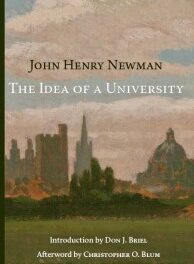We support our Publishers and Content Creators. You can view this story on their website by CLICKING HERE.
Rod Dreher wants us to see into the life of things—to see the creator hidden in the creation, to see the grandeur of God and sense the “deep down things.” But the trouble with the appeal of mysticism is the perennial danger of gnosticism.
Living in Wonder: Finding Mystery and Meaning in a Secular Age, by Rod Dreher (288 pages, Zondervan, 2024)
Rod Dreher prefaces the final chapter of his new book Living in Wonder with a quotation from Karl Rahner, “The devout Christian of the future will either be a ‘mystic’ —one who has experienced ‘something’ or he will cease to be anything at all.”
As it stands, Rahner seems to be saying that personal religious experience is vital—that supernatural revelation will be necessary to the faith of future Christians. In other words, cultural Christianity won’t do. “I’m a Catholic because my grandfather was Polish” won’t wash.
But is that what Rahner is really saying? Does the final phrase hold a more troubling meaning? He predicts that the Christian who is not a mystic will “cease to be anything at all.” Does he mean the non-mystic will cease to be a Christian, or that he really will “cease to be anything at all”? If the latter, the cost of being a non-visionary would seem to be rather severe: Being devoid of mysticism would mean annihilation—being nothing at all. To extend the thought from the individual to the corporate, for us to fail as a race of mystics means the abolition of man.
Dreher, for the record, is in favor of mysticism. His subtitle is Finding Mystery and Meaning in a Secular Age. Dreher is a good storyteller and the book is chock full of personal encounters with “the other side” He recounts stories of demonic possession, dangerous dabbling in the occult, encounters with aliens and theories about UFOs—all of this plus reportage of the latest findings in psychiatric research and the upsurge of interest in signs, symbols, sacraments… the marvelous and miraculous.
The last quarter of the book is spent explaining and encouraging a mystical mentality. Rod wants us to see into the life of things—to see the Creator hidden in the creation, to see the grandeur of God and sense the “deep down things.”
Dreher’s writings always have an edge of the ominous. He sees our society as dangerously dysfunctional and predicts a collapse into totalitarianism. He argues that regaining a sense of mystery and meaning is a survival skill for a culture swamped by a seemingly intentional corporate stupidity, a moral vacuum, and an imminent technological tsunami. Unless we learn to wonder we will wander. We will be lost in the dark wood, and the grimmer sense of Rahner’s prophecy will come true: We will not only not be Christian; we will not be anything at all.
I liked Living in Wonder very much and agree not only with Dreher’s critique of contemporary culture but also his critique of contemporary Christianity. Afraid and embarrassed by the supernatural, our church leaders and theologians have substituted moral, therapeutic deism for the gritty gospel of God. The options are many—from traditionalist worship to “silent discos” in the cathedral nave, and too much of it is no more than a shallow attempt at entertainment with a spiritual twist. Christianity in the West is a vast smorgasbord in which all the dishes are vanilla pudding. A return to the mystical (complete with asceticism) will add some spice to the dish.
Dreher’s call for the supernatural to be supercharged in our own experience is a courageous calling in our secular world, but will the prophet be heard? I suspect Dreher’s book will be welcome on the bookshelves of the converted, but I doubt whether many materialists will invest in it, and if they do, will they understand it at all? I fear Rod may be written off as a kook. “Demons and aliens? Medieval saints and symbols? Hermits and holy men? Come now. We’re modern people. We have iPhones and Netflix and air travel. You go to your hermit’s hut if you like. We have a life to lead.”
But the prophet does not expect to be heeded or needed. He is like the dog that barks at the train. He barks because he is a dog, not because he thinks the train will stop. Dreher’s book does not worry me because people will ignore his message, but because some vulnerable souls will swallow the message uncritically. The trouble with the appeal of mysticism is the perennial danger of gnosticism. At the heart of gnosticism is the attraction of special knowledge and an elitist religious experience, and that invariably leads to a quest to ascend to heights unknown, to rise above the mundane and experience some seventh heaven.
At one point Dreher tells the story of an American lad who was brought up in a typical, suburban, beige Catholic parish. The boy got a taste for the weird and wonderful by practicing self-hypnosis and that led to Eastern meditation. He left his Catholic home and embarked on a magical mystery tour seeking the supernatural. He ended up in a cave in Tibet chanting mantras and was on the brink of a spiritual and psychological abyss. Thirsting for the mystical is all well and good, but in a culture like ours, which is religiously ignorant and spiritually naive, the quest for mystical enlightenment can too often end up in the dark.
Gnosticism’s metaphysical error is an implicit dualism—a division between the material and spiritual realms. The thirst for mystical experience assumes and emphasizes this dichotomy and weakens the union of heaven and earth accomplished by the incarnation.
A story is told of a nun in St Thomas Aquinas’ time who was reported to have the gift of levitation. The novices rushed to the saint to tell him of this prodigy. He was reluctant to join the crowds gathered to see the flying nun, but at last he agreed to go. Seeing Aquinas gazing up at the floating sister the novices asked what he thought. “I didn’t know nuns wore such big boots,” he replied.
So while I share Dreher’s enthusiasm for all that is heavenly I want my faith to be tethered to the ground. I’m interested in the monks, the misfits, and the mystics—the prophets and poets—but I am more interested in the saints who wear working clothes. They say true saints move forward on their knees—perhaps they move best when washing feet, scrubbing floors, or planting onions. Dreher’s earlier book The Benedict Option argues for the for the wisdom of the way of St Benedict, and it is Benedict’s down- to-earth, practical approach to the spiritual life which has not only the most traction, but also the most durability.
The poet Henry Vaughn would have shared Rod Dreher’s passion for “seeing into the Life of Things.” In his poem “The Revival,” he invites us to wake up, to open our eyes, to share in the mystery…
UNFOLD ! unfold ! Take in His light,
Who makes thy cares more short than night.
The joys which with His day-star rise
He deals to all but drowsy eyes ;
And, what the men of this world miss
Some drops and dews of future bliss.
Hark ! how His winds have chang’d their note !
And with warm whispers call thee out ;
The frosts are past, the storms are gone,
And backward life at last comes on.
The lofty groves in express joys
Reply unto the turtle’s voice ;
And here in dust and dirt, O here
The lilies of His love appear !
…but it is the final couplet that Vaughn delivers the goods. The mystery and the meaning are experienced not by escaping this world, but by plunging into it more deeply, for “here in dust and dirt, O here, the lilies of His love appear.”
The Imaginative Conservative applies the principle of appreciation to the discussion of culture and politics—we approach dialogue with magnanimity rather than with mere civility. Will you help us remain a refreshing oasis in the increasingly contentious arena of modern discourse? Please consider donating now.
The featured image is “Asking the Stars” (1895) by Karl Wilhelm Diefenbach, and is in the public domain, courtesy of Wikimedia Commons.

 Conservative
Conservative  Search
Search Trending
Trending Current News
Current News 






